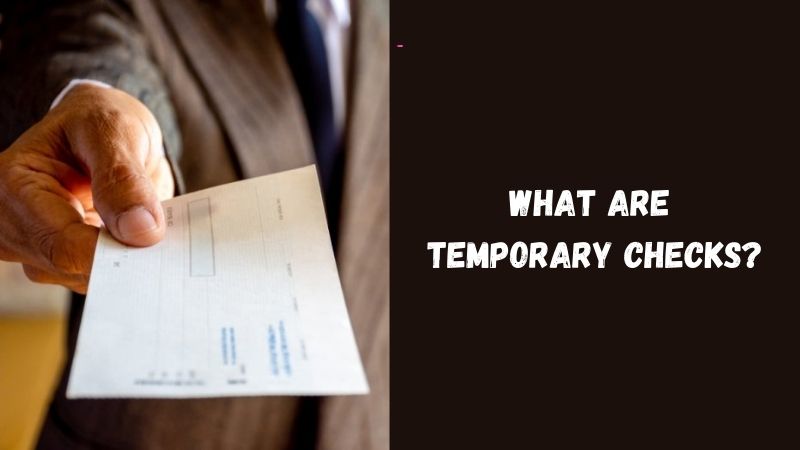
Temporary checks, also referred to as starter or counter checks, are given out by the bank when you first open a checking account or when you’re out of preprinted checks and need a personal check urgently.
Types of checks
- Cash checks. They are used to pay cash to the bearer of the form;
- Estimated checks. They are used to carry out non-cash payments. They contain an order from the account holder to transfer the specified amount to the account of the person indicated in the check. Checking checks are divided into covered and uncovered;
- Nominal checks. They are issued for a specific person. Only he or she can receive money and make a payment;
- Order checks. They are issued in favor of a specific person but can be given to another person. The transfer inscription is made on the back of the check document;
- Bearer checks. They are issued to the bearer. It may not contain the drawer, or the transfer record may be missing.
Temporary check details
A temporary check must contain all the required details and may also contain additional details determined by the specifics of banking and tax legislation. The check form is determined by the credit institution independently.
A temporary check must contain the following details:
- the name “check” included in the text of the document;
- ordering the payer to pay a certain amount of money;
- name of the payer and indication of the account;
- indication of the payment currency;
- indication of the date and place of drawing up the check;
- the signature of the person writing the check – the drawer.
The absence of any of the specified details in the document deprives it of the validity of a check.
A check that does not contain an indication of the place of its preparation is considered as signed at the location of the drawer. Percentage indication is considered unwritten.
When paying by checks, clients enter into a settlement agreement. This agreement must specify the procedure for opening and maintaining accounts for settlements by checks. The methods and terms of information transfer, the procedure for confirming the client’s checking accounts, the obligations of the parties, etc. are drawn up. Each bank develops intra-bank rules for check settlements, the content of the check form, the terms of payment for checks, the terms of settlements, the execution of settlements, etc.
Advantages and disadvantages of temporary checks
The advantage of a check is its efficiency and simplicity. A check can be drawn anytime, anywhere. Its specific property is to ensure complete anonymity of the payment in the sense that it does not indicate for what reason the drawer writes the check, as well as for what reason the money is paid to the check holder.
Payments via checks have the following advantages:
- speed of calculations;
- high speed of money transfer to the account of the check holder and, accordingly, acceleration of turnover and reduction of accounts receivable.
Payments via checks also have disadvantages:
- impossibility of transfer of large amounts of payments;
- insufficient guarantee of payments due to insufficient funds from the drawer, that is, the value of the goods and materials received or services must coincide
- with the amount of the check;
- the risk of forgery.
